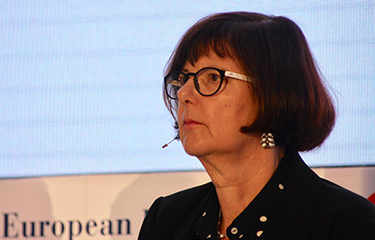South Africa is fast-tracking the allocation of fishing rights to small-scale fishers in a bid to attract additional investment in a sector that has been characterized by low production, inadequate investment, and socio-economic marginalization.
Department of Environment, Forestry, and Fisheries Minister Barbara Creecy said in a speech overviewing the department’s budget that completion of the 15-year fishing rights allocation targeting 110 small-scale fishing cooperatives across South Africa, the first time such a process has been achieved in the country’s history, is earmarked for completion by end of 2020 for the benefit of more than 10,000 fishers nationwide.
Creecy said the allocation process “is a first step to formalizing and developing small-scale fishers who even before COVID-19 pandemic faced enormous inequality, insecurity and barriers to economic participation.”
Although characterized by low production, small-scale fishing in South Africa is a source for mussels, finfish, octopus, rock lobster, sand and mud prawns, limpets, crabs, oysters, seaweed, and abalone.
Since 2016, when legislation was amended to recognize them as a key cog in South Africa’s seafood value chain, small-scale fishers have been applying for rights to catch any species categorized for harvest under the country’s Marine Living Resources Act regulations.
Meanwhile, the Department of Environment, Forestry, and Fisheries (DEFF) is collecting views from fishing industry stakeholders on the amended period for the commencement of the 2020-2021 fishing-rights allocation process for granting commercial fishing rights.
The commencement period was necessary to “meet new deliverables and timeframes” according to Creecy. The extension of the FRAP fishing-rights award period was approved by the South African Cabinet in the last quarter of 2019.
According to a department release, the extension is to allow for adequate “public consultation process on the proposed policies, application forms, and amended fees that will be payable.”
“The consultation process will aim to allow debate and discussion on the controversial aspects of a rights allocation process, such as the criteria used to determine transformation targets, balancing criteria, minimizing fronting and paper quota holders, quantum methodology, and determinations of economically viable allocations,” the release states.
The post-COVID-19 period will likely be a time for the revitalization and expansion of the country’s aquaculture sector, which though still small, was growing at rate of 8.6 percent between 2006 and 2016.
“Of crucial importance at this point in time is to stabilize our aquaculture sector and the 4 875 jobs it currently sustains,” Creecy said. “We are finalizing consultations on the aquaculture bill so that we provide policy certainty without over-regulation.”
The Aquaculture Development Bill was introduced in South Africa parliament in June 2018. However, it lapsed in May 2019, was revived on 5 March, 2020, before it was withdrawn on 19 March, 2020.
“We hope to bring this bill to the house next year,” Creecy said.
Photo courtesy of South Africa's Department of Environment, Forestry, and Fisheries







